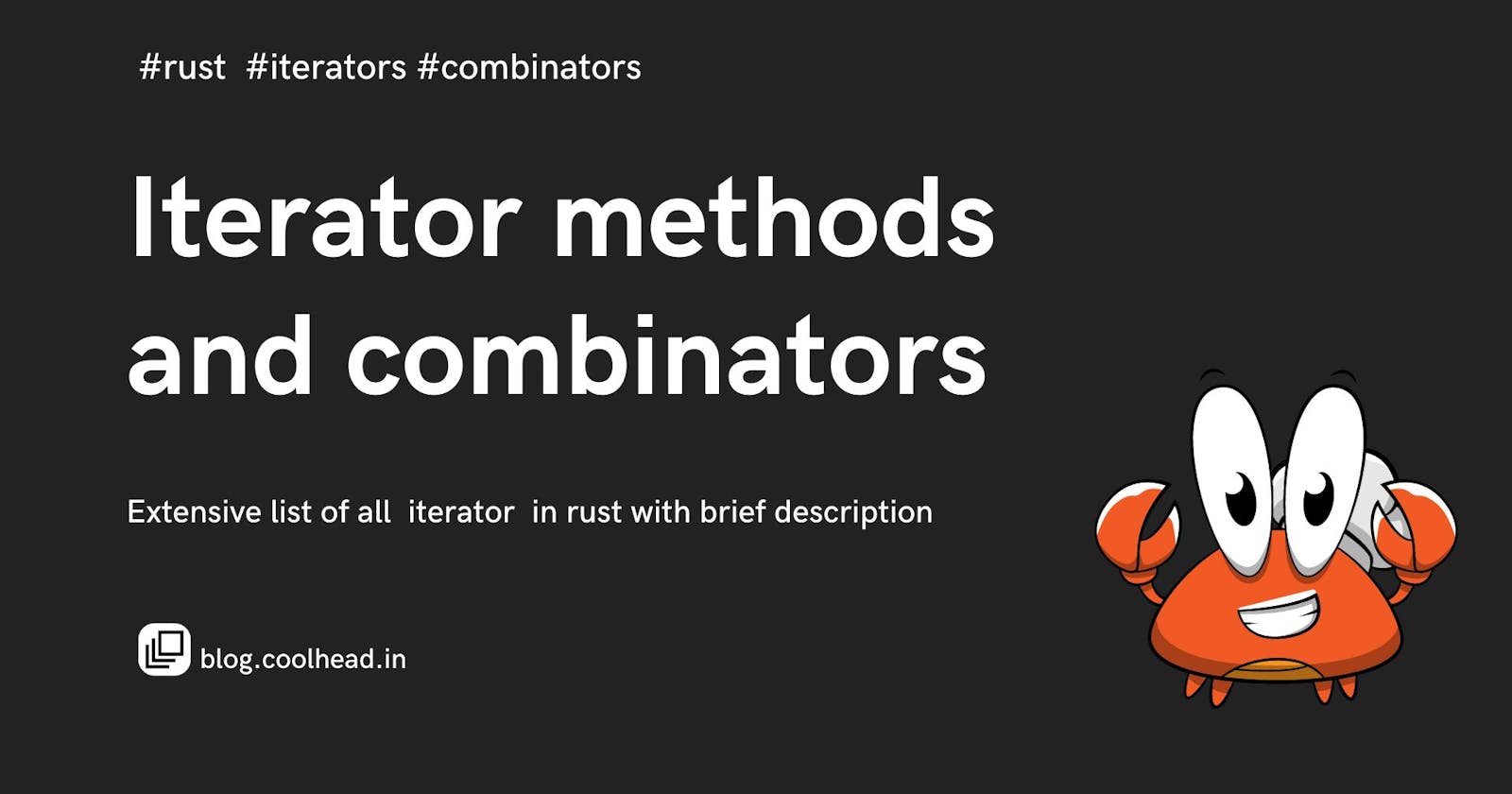Hey guys, I am learning rust and i create a comprehensive list of iterators in rust. I really do think this would be helpful for you as well.
Rust provides a rich set of iterator combinators and methods. Here's a list of some common iterator methods and combinators, along with brief descriptions:
- Adapter Methods:
map: Transforms each element using a closure.filter: Filters elements based on a predicate.enumerate: Adds an index to each element.skip: Skips a specified number of elements.take: Takes a specified number of elements.skip_while: Skips elements until a predicate is false.take_while: Takes elements until a predicate is false.peekable: Wraps an iterator to allow peeking at the next element.rev: Reverses the iterator.
- Consumer Methods:
fold: Accumulates elements into a single value.for_each: Applies a closure to each element.collect: Converts the iterator into a collection.count: Counts the number of elements.last: Returns the last element.
- Predicate Methods:
all: Checks if all elements satisfy a predicate.any: Checks if any element satisfies a predicate.find: Finds the first element satisfying a predicate.position: Finds the index of the first element satisfying a predicate.
- Combining Iterators:
chain: Concatenates two iterators.zip: Combines two iterators into pairs.flat_map: Maps each element to an iterator and flattens the result.
- Creating Iterators:
iter: Creates an iterator over a collection.iter_mut: Creates a mutable iterator over a collection.range/range_inclusive: Creates an iterator over a range of values.
- Other:
cloned: Produces a new iterator with cloned elements.cycle: Creates an iterator that repeats indefinitely.
chainandchainlike:chain: Chains two iterators together.flat_map: Maps each element to an iterator and flattens the result.zip: Combines two iterators into pairs.interleave: Interleaves elements from two iterators.
peeking_take_whileandpeeking_take_until:peeking_take_while: Takes elements while a predicate is true, allowing peeking at the next element.peeking_take_until: Takes elements until a predicate is true, allowing peeking at the next element.
by_ref:by_ref: Borrows an iterator, allowing it to be used by multiple consumers.step_by:step_by: Skips a specified number of elements between each yielded element.dedupanddedup_by:dedup: Removes consecutive duplicates from an iterator.dedup_by: Removes consecutive duplicates based on a predicate.positionrelated:rposition: Finds the index of the last element satisfying a predicate.find_map: Finds the first element satisfying a predicate and applies a transformation.minandmax:min: Finds the minimum element.max: Finds the maximum element.windowsandchunks:windows: Produces overlapping windows of a specified size.chunks: Produces non-overlapping chunks of a specified size.unzip:unzip: Transposes a sequence of pairs into a pair of sequences.
Conclusion:
Rust Provide enough methods for functional programming.

